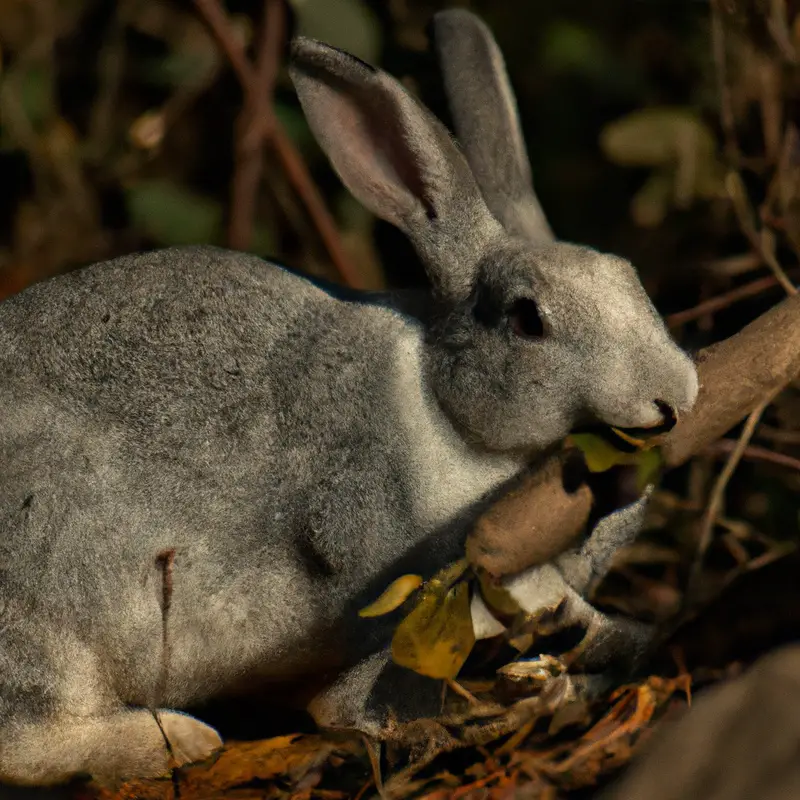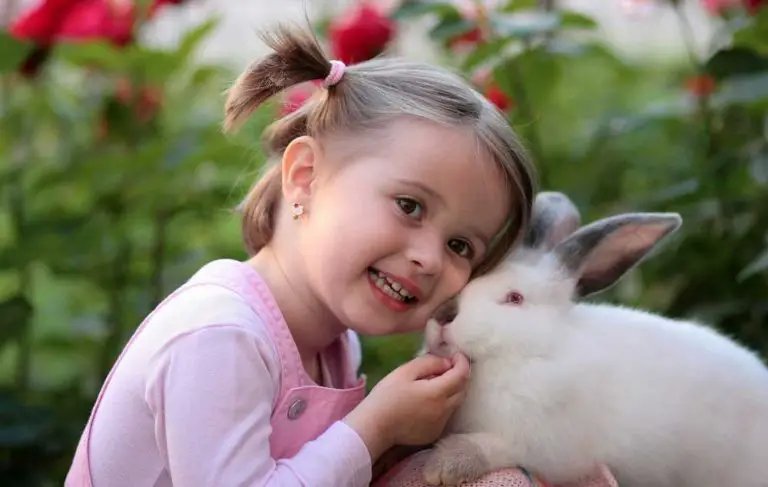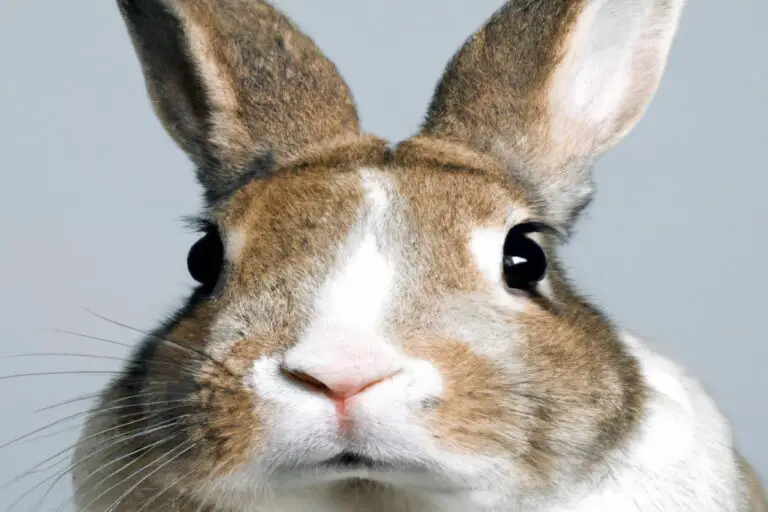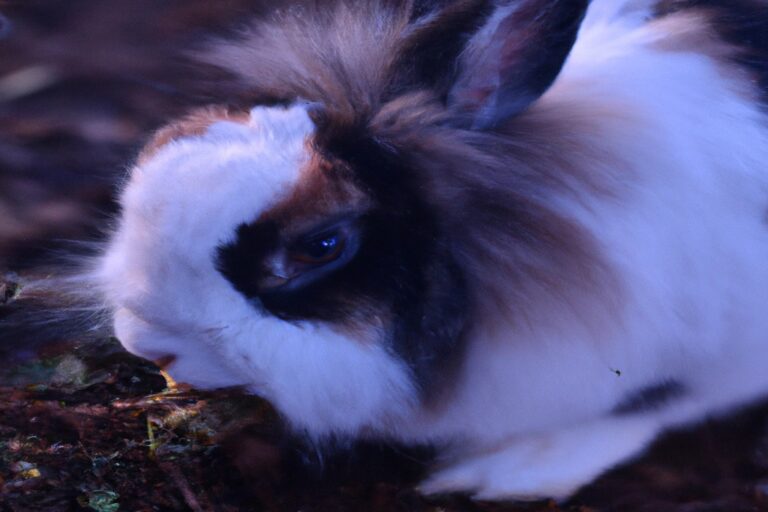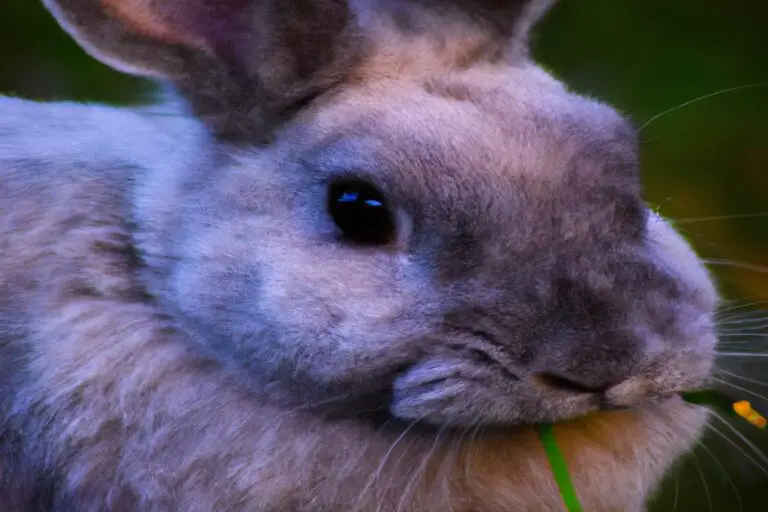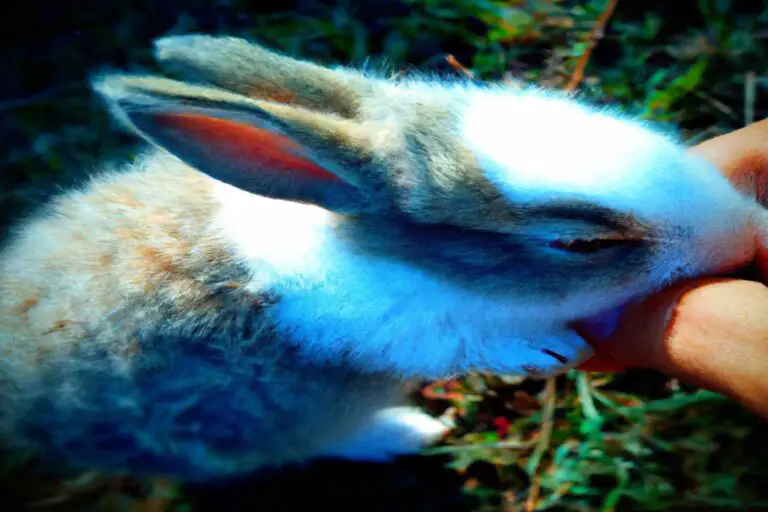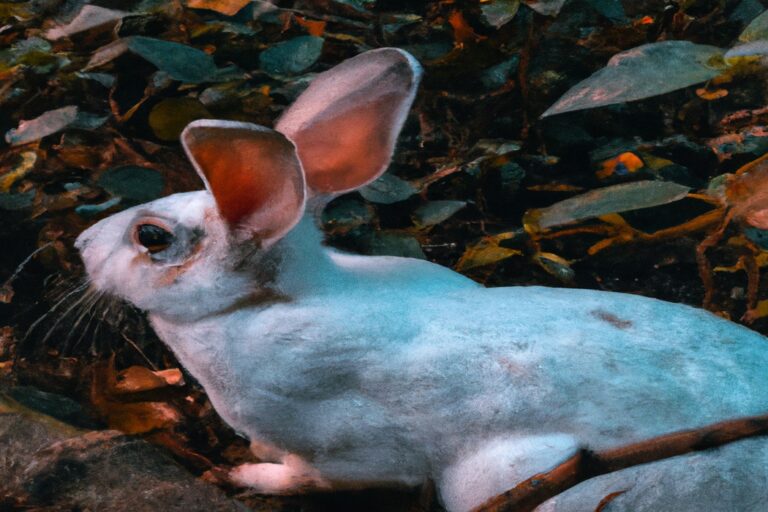How Long Can Rabbits Go Without Food? Find out now!
Key Takeaways:
- Rabbits can survive for several days without food, but prolonged periods without eating can lead to significant health issues.
- Water is even more essential than food for rabbits, as they can only survive a few days without it.
- It is crucial to provide a balanced diet and appropriate amounts of hay, vegetables, and pellets to ensure a healthy and thriving rabbit.
- If a rabbit goes without food for longer than 24 hours, it is advised to seek veterinary assistance immediately.
Hey there! Have you ever wondered how long rabbits can go without food?
Well, you’re in the right place! As an expert on rabbits, I’m here to give you the lowdown on their incredible digestive system and shed some light on this intriguing topic.
We’ll explore the factors that can affect a rabbit’s ability to go without food, how long a healthy adult rabbit can hold out, and the risks they face if deprived of food for too long.
Plus, I’ll share tips on providing the right nutrition to keep your fluffy friend happy and healthy.
So, let’s hop right in and discover the fascinating world of rabbit hunger games!
| Rabbit Age | Maximum Time Without Food |
|---|---|
| Newborn (0-2 days) | 6-12 hours |
| 1-2 weeks old | 24-48 hours |
| Weaned (3-8 weeks old) | 24-48 hours |
| Adult Rabbit | 12-24 hours |
| Overweight or Obese Rabbit | 12-24 hours (with supervision) |
Understanding a rabbit’s digestive system
A rabbit’s digestive system is unique and specialized for their herbivorous diet.
Overview of a rabbit’s digestive system
A rabbit’s digestive system is designed for a specific diet of plant material. It begins in the mouth, where teeth continuously grow to handle constant chewing.
From there, food travels to the stomach and small intestine, where nutrients are absorbed.
The large intestine then helps break down fiber before waste is eliminated. This unique system allows rabbits to efficiently extract nutrients from their food.
However, it also makes them susceptible to digestive issues if their diet is not properly balanced, so it’s important to provide them with a diet rich in hay and vegetables.
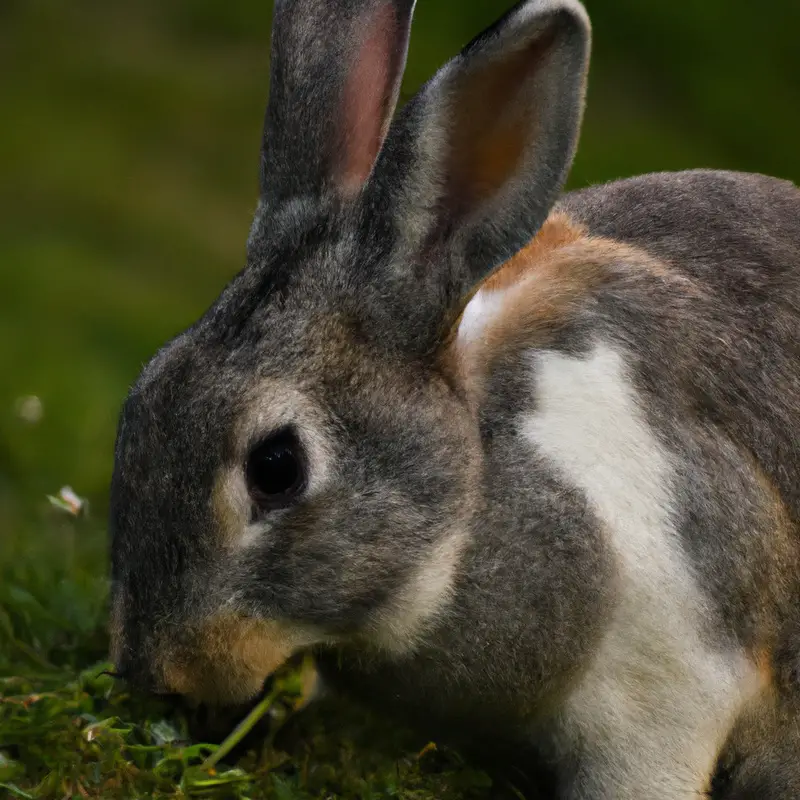
Role of food in a rabbit’s digestive process
The food plays a vital role in a rabbit’s digestive process.
It provides essential nutrients that are needed for the rabbit’s growth, maintenance, and overall well-being.
Rabbits are herbivores and require a high-fiber diet consisting mainly of hay, fresh vegetables, and a small amount of pellets.
The fibrous nature of the food helps to keep their teeth well-maintained and aids in the proper functioning of their digestive system.
The food is broken down in the rabbit’s stomach and then moves through the small and large intestine, where the nutrients are absorbed and waste is eliminated.
A balanced and appropriate diet is crucial for maintaining a healthy digestive system in rabbits.
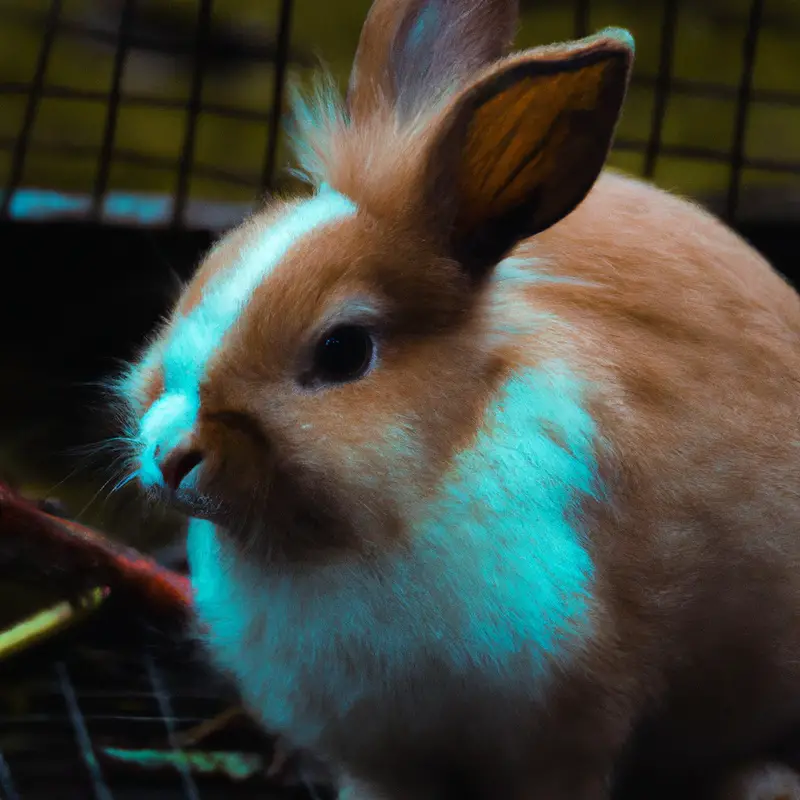
Factors that can affect a rabbit’s ability to go without food
The age of the rabbit can impact its ability to go without food.
The overall health and body condition of the rabbit can also affect its ability to go without food.
Age of the rabbit
The age of the rabbit is an important factor to consider when evaluating how long they can go without food. Younger rabbits, such as kits (baby rabbits), have less body mass and energy reserves, making them more susceptible to the negative effects of fasting.
Adult rabbits, on the other hand, have larger body sizes and more energy stores, allowing them to go longer periods without eating.
However, it is crucial to note that regardless of age, a rabbit should always have access to fresh water to prevent dehydration.
Overall health and body condition of the rabbit
The overall health and body condition of the rabbit play a crucial role in its ability to go without food. A well-nourished and healthy rabbit will typically have more stamina and reserves to sustain itself during periods without food.
Conversely, a rabbit that is already underweight or dealing with health issues may struggle to go without food for extended periods.
It is important to ensure the rabbit’s diet is balanced and nutritious to maintain its overall health and body condition. Additionally, regular veterinary check-ups can help identify and address any underlying health issues that may affect the rabbit’s ability to go without food.
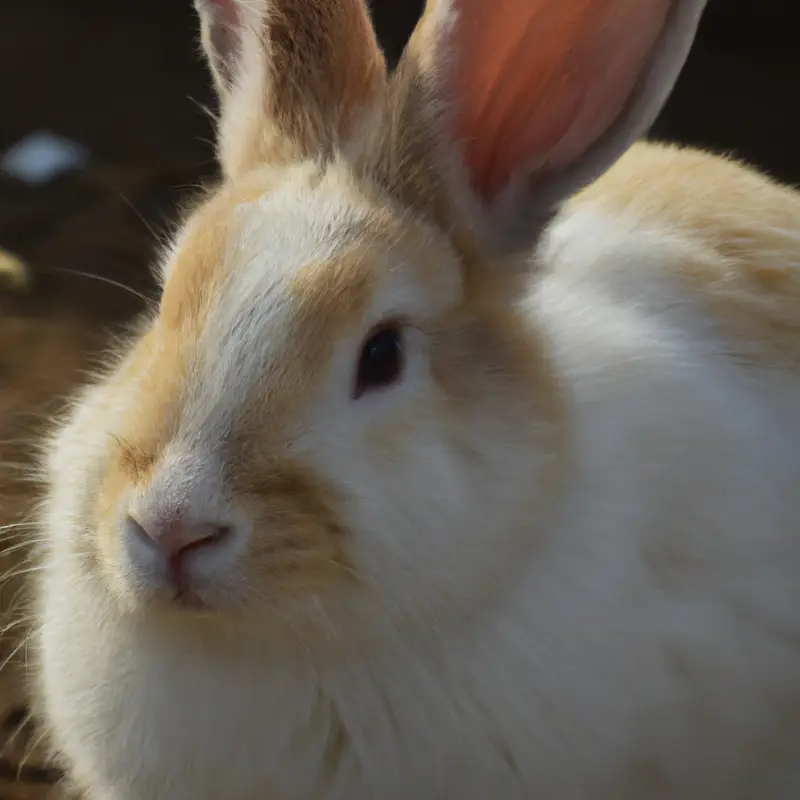
Availability of water and other essential nutrients
Water and essential nutrients are crucial for a rabbit’s health.
Rabbits need access to fresh, clean water at all times to stay hydrated.
Lack of water can lead to dehydration and serious health issues.
In addition to water, rabbits require a balanced diet that includes fiber, carbohydrates, proteins, vitamins, and minerals.
These nutrients can be obtained from high-quality hay, fresh vegetables, and specially formulated rabbit pellets.
Providing a variety of foods ensures that your rabbit receives all the essential nutrients it needs to thrive.
How long can a healthy adult rabbit go without food?
A healthy adult rabbit can typically go without food for about 12-24 hours.
Rabbit’s natural instincts and ability to survive in the wild
Rabbits have strong natural instincts that help them survive in the wild.
Their ability to detect predators through acute hearing and a wide field of vision enables them to quickly escape danger.
They are also agile runners and have the ability to jump great distances, which helps them evade predators.
Additionally, rabbits are able to forage for food, finding a variety of plants and grasses to eat.
Their digestive system is designed to extract nutrients efficiently from their diet, allowing them to thrive even with limited food sources.
General rule of thumb for a healthy adult rabbit
A general rule of thumb for a healthy adult rabbit is that they should have constant access to fresh hay and water. Hay is a key component of their diet and helps maintain their dental health.
Additionally, rabbits should be fed a balanced diet of fresh vegetables and limited amounts of pellet food.
It’s important to monitor their weight and adjust their food intake accordingly. Ultimately, maintaining a consistent feeding routine and providing a variety of nutritious food options is crucial for their well-being.
Signs of hunger and distress in a rabbit
Signs of hunger and distress in a rabbit can include:
- Loss of appetite and refusal to eat
- Constantly searching for food or chewing on objects
- Weight loss and decreased activity levels
- Unusual behaviors such as aggression or excessive grooming
- Changes in droppings, such as smaller or absent fecal pellets.
Risks and consequences of prolonged food deprivation in rabbits
Prolonged food deprivation in rabbits can have serious risks and consequences, including impact on the rabbit’s digestive system, weakening of the immune system, development of gastrointestinal stasis, and potential organ damage or failure.
Impact on the rabbit’s digestive system
The impact of prolonged food deprivation on a rabbit’s digestive system can be severe. Without food, the digestive system slows down, resulting in reduced production of digestive enzymes and stomach acid.
This can lead to a decrease in intestinal motility and cause issues such as constipation, bloating, and abnormal fermentation in the gut.
Additionally, the lack of nutrients can weaken the lining of the digestive tract, which may make the rabbit more susceptible to infections and inflammation. It is crucial to ensure that rabbits have a consistent and appropriate diet to maintain a healthy digestive system.
Weakening of the immune system
Weakening of the immune system in rabbits can lead to health complications. When a rabbit doesn’t eat for an extended period of time, its immune system can become compromised.
This makes them more susceptible to infections and diseases.
Additionally, a weakened immune system can slow down the healing process and make it harder for the rabbit to recover from illnesses or injuries. It is important to ensure that rabbits have a balanced and consistent diet to maintain their immune system and overall health.
Development of gastrointestinal stasis
Gastrointestinal stasis is a serious condition that can occur in rabbits.
It is characterized by a slowdown or cessation of the normal movement of food through the digestive system.
This can lead to a build-up of gas and food in the stomach and intestines, causing discomfort and pain.
Common causes of gastrointestinal stasis include a lack of fiber in the diet, dehydration, stress, and dental problems.
If left untreated, it can be life-threatening for rabbits.
Signs of gastrointestinal stasis include a decrease in appetite, reduced or no fecal output, and a hunched posture.
If you notice these symptoms in your rabbit, it is important to seek immediate veterinary care.
Potential organ damage or failure
Prolonged food deprivation in rabbits can result in potential organ damage or failure. Without sufficient nutrition, their organs, such as the liver and kidneys, may become stressed and unable to function properly.
This can lead to a range of health issues, including metabolic imbalances and compromised immune function.
Additionally, rabbits may experience muscle wastage and weakness, further impacting their overall well-being. It is crucial to provide rabbits with a balanced diet to ensure their organs stay healthy and avoid these potential consequences.
Providing appropriate nutrition for rabbits
Ensure that your rabbits receive a high-fiber diet for proper nutrition.
High-fiber diet: importance and sources
A high-fiber diet is important for rabbits because it promotes healthy digestion and prevents issues like obesity and dental problems.
Good sources of fiber for rabbits include hay, fresh vegetables, and certain fruits.
Incorporate these foods into your rabbit’s daily diet to ensure they are getting enough fiber for optimal health.
Remember to introduce new foods gradually and consult with a veterinarian for specific dietary recommendations for your rabbit.
Essential nutrients for rabbits and their sources
Rabbits require a balanced diet to stay healthy.
Essential nutrients for rabbits include:
- Fiber: Hay and fresh grass are excellent sources of fiber.
- Protein: Provide high-quality, plant-based sources like leafy greens, legumes, and hay.
- Vitamins: Offer a variety of vegetables, especially dark leafy greens, for vitamins A, D, and E.
- Minerals: Provide a mineral-rich diet with calcium from leafy greens, and phosphorus from pellets or grains in moderation.
- Water: Ensure fresh, clean water is always available.
Remember that a balanced diet and appropriate portion sizes are key to maintaining your rabbit’s overall health and well-being.
Common feeding mistakes to avoid
One common feeding mistake to avoid when it comes to rabbits is overfeeding.
While it may be tempting to give your furry friend extra food, overfeeding can lead to obesity and other health issues.
Another mistake is not providing a balanced diet.
Rabbits need a mix of hay, fresh vegetables, and pellets to thrive.
Additionally, avoid feeding them harmful foods like chocolate, onions, or avocados.
Finally, be sure to provide fresh water at all times and regularly clean their feeding dishes.
Frequently Asked Questions about rabbits and food
Can rabbits eat fruits and vegetables?
Yes, rabbits can eat fruits and vegetables.
In fact, fresh fruits and vegetables are a healthy addition to their diet.
However, it’s important to introduce these foods gradually and in limited quantities.
Some fruits and vegetables that are safe for rabbits to eat include apples, strawberries, carrots, and leafy greens like lettuce and spinach.
Remember to always wash the fruits and vegetables thoroughly and remove any seeds or pits before giving them to your rabbit.
How often should I feed my rabbit?
When it comes to feeding your rabbit, it’s important to establish a regular feeding schedule.
I recommend providing fresh hay and water at all times.
In addition to hay, you should offer a small portion of fresh vegetables daily.
Dry pellets can also be given in limited amounts.
Remember to monitor your rabbit’s weight and adjust their food intake accordingly.
Consulting with a veterinarian is also beneficial to ensure your rabbit’s nutritional needs are being met.
What should I do if my rabbit refuses to eat?
If your rabbit refuses to eat, it’s important to take action quickly.
Here’s what you can do:
- Monitor your rabbit closely to observe any other signs of illness or discomfort.
- Offer a variety of fresh, high-quality hay, vegetables, and a small amount of pellets to entice your rabbit to eat.
- Ensure the environment is calm, quiet, and stress-free for your rabbit.
- If your rabbit still refuses to eat or shows other concerning symptoms, contact your veterinarian for further guidance and evaluation.
Remember to always consult with a veterinarian for professional advice to ensure your rabbit’s health and well-being.
Final Verdict
Understanding a rabbit’s digestive system is essential to comprehend their ability to go without food.
Factors such as age, overall health, and the availability of water and essential nutrients can affect a rabbit’s ability to fast.
While a healthy adult rabbit can typically go without food for up to 24 hours, prolonged food deprivation can have severe consequences, including digestive issues, weakened immune system, and organ damage.
Providing appropriate nutrition, such as a high-fiber diet and essential nutrients, is crucial for a rabbit’s well-being.
Remember, always consult a veterinarian for personalized advice.

